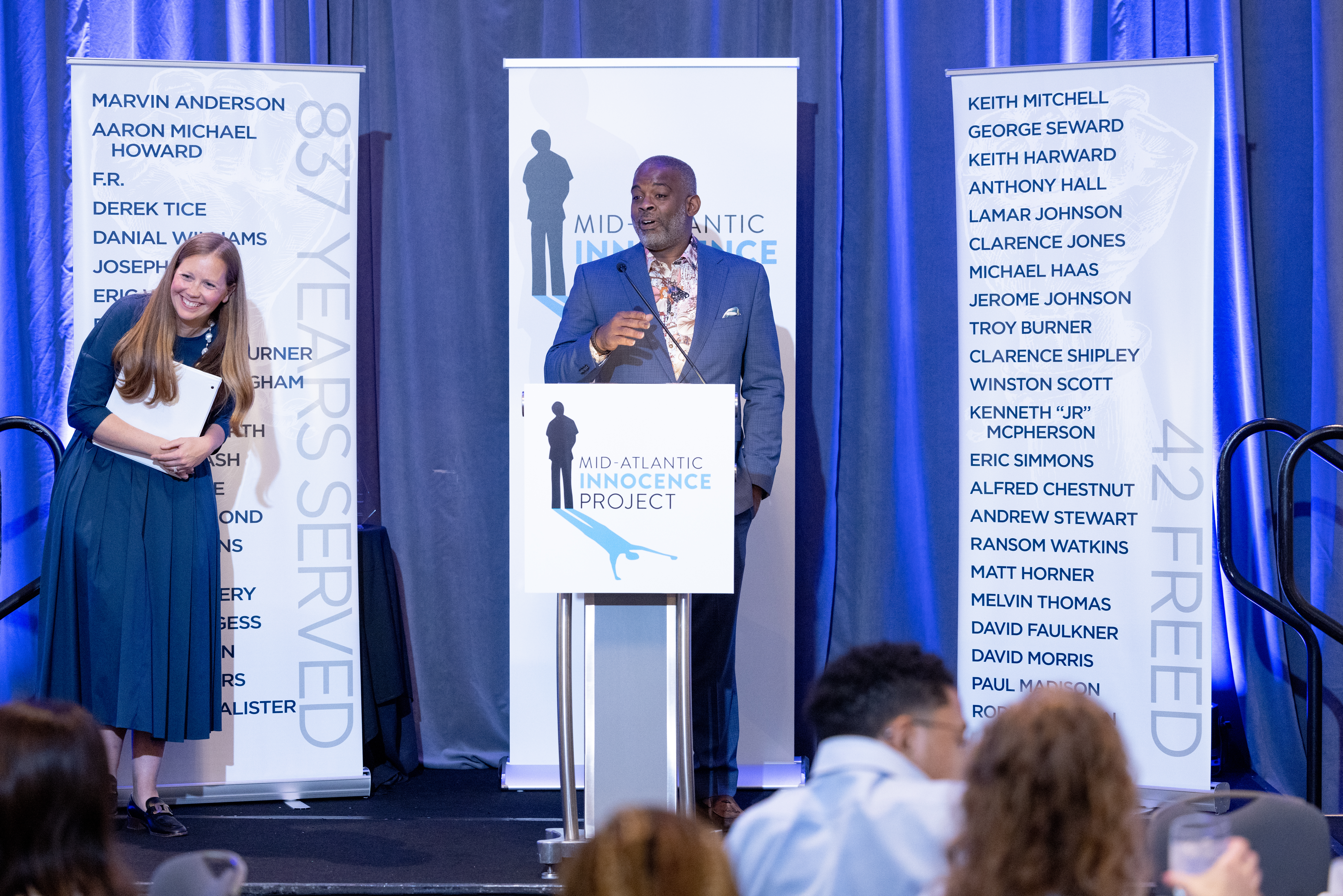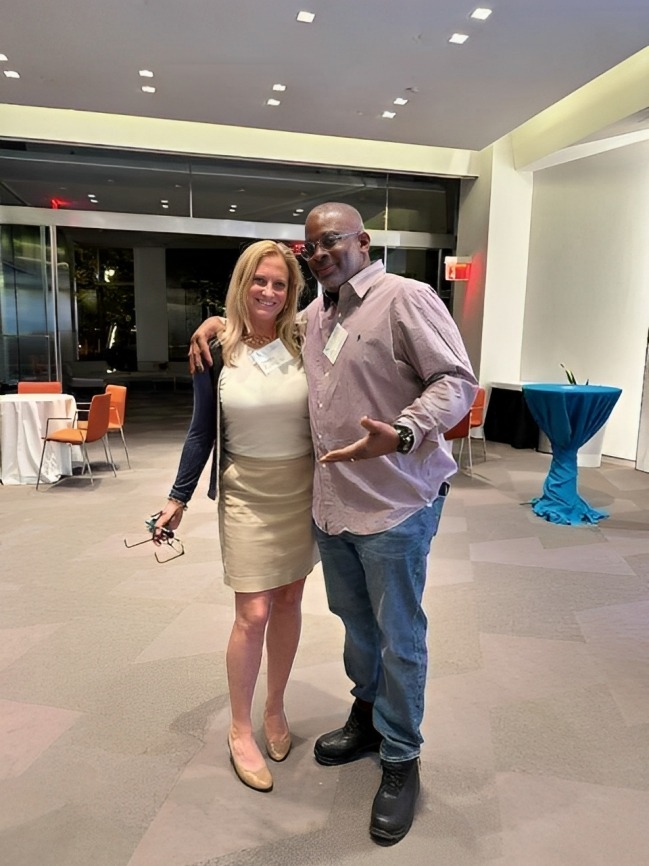Building MAIP’s Exoneree Support Program
May is National Mental Health Awareness Month. Exonerees deal with unique mental health challenges as they adjust to life outside of prison, but there are few services that cater to their needs. To fill that gap, last summer, MAIP established the Venable-Burner Exoneree Support Fund, named after MAIP client Troy Burner and longtime MAIP pro bono partner Venable.

Thanks to the Fund, this April, we welcomed Claudia Baker, our new Client Services Specialist, to the MAIP team. Claudia is a licensed clinical social worker with a specialization in post-traumatic stress disorder (PTSD). Since joining MAIP, she has been hard at work setting up MAIP’s exoneree support program. “My goals are to ensure that all of our clients have a reentry plan before release and that they are able to meet with a social worker,” Claudia said.
For people who are wrongfully convicted, the injustice of their incarceration exacerbates the stresses of prison. As Troy Burner told BBC World Service in a recent interview, “You have an amount of trauma incurred with just being in prison, but there’s another amount of trauma that one endures when they’re innocent.” This trauma does not magically disappear after release or exoneration. Upon release from prison, exonerees have to grapple with a world that has completely changed in the years that were stolen from them.
“Most people don’t realize how heavy the toll of wrongful conviction is,” Claudia said. “There is a lot of attention when someone is exonerated, but what happens after the media interest dies down?” Approximately 70 to 80% of exonerees are diagnosed with PTSD. Exonerees may also suffer from depression, anxiety, grief, and substance abuse disorders.

A crucial part of Claudia’s job is meeting with our clients and listening to their needs. “It’s important to meet them where they are, listen to their concerns, and just be available,” she explained. Based on what clients tell her, she then helps them find services that can assist with housing, healthcare, employment, and other needs. “There are resources out there, but not many target exonerees,” she said. As she builds MAIP’s exoneree support program, she plans to collaborate with organizations that provide post-release assistance, so we can direct our clients to more resources specifically tailored to them.
Claudia also plans to integrate a peer support network into the program. “It’s really helpful to have a group of people who have been through the same experience, who can share how they navigated the reentry process,” Claudia said. Ultimately, she wants our clients to know that they are not alone as they rebuild their lives. “I love connecting our clients to the resources they need, and I want to make sure help is always available for them.”